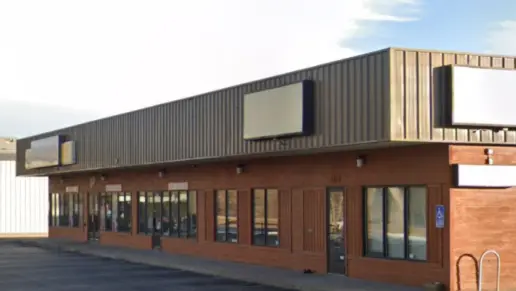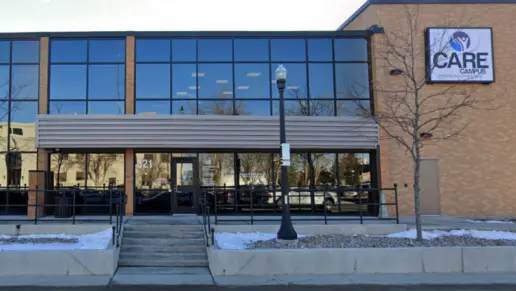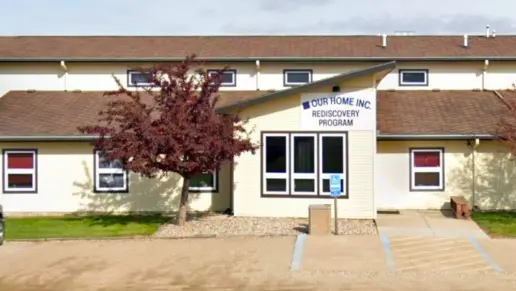Will not Take disabled Veterans with Choice Care.
About the Facility
Lewis & Clark Behavioral Health has provided substance use services for residents of southeast South Dakota and northeast Nebraska for 40 years. Lewis & Clark Behavioral Health services are based on the latest advances in the effective treatment of drug and alcohol addiction.
 Treatment
Treatment
 Alcoholism
Alcoholism
A person with alcoholism (alcohol use disorder) struggles with being unable to stop drinking too much alcohol, which may make them unable to function in society. To overcome this alcohol addiction, they may need alcohol rehab in South Dakota. This treatment provides a safe and structured environment to detox and move toward a life of sobriety. Options include various types of inpatient and outpatient programs.
 Drug Addiction
Drug Addiction
Support provided by drug rehab in South Dakota includes social, physical, and emotional aspects. Program participants learn how to meet needs in each of these areas without turning to drugs. The goals of the program are freedom from drug dependency and long-term recovery.
 Dual Diagnosis
Dual Diagnosis
Dual-diagnosis addiction treatment programs in South Dakota recognize the importance of comprehensive care for individuals with co-occurring substance use disorders and mental health conditions. These specialized programs are offered at various levels, including detox, outpatient, inpatient, and partial hospitalization options. Evidence-based therapies such as cognitive-behavioral therapy (CBT), dialectical behavior therapy (DBT), trauma-informed therapy, and family therapy address both disorders and promote mental health and well-being. Programs may also encompass 12-Step recovery, trauma therapies, and psychiatric care.
 Substance Abuse
Substance Abuse
In South Dakota, individuals seeking substance abuse treatment can typically find a range of inpatient and outpatient drug and alcohol rehabs. These programs incorporate individual and group therapy, skills training, with evidence-based therapies such as cognitive-behavioral therapy (CBT), dialectical behavior therapy (DBT), and trauma-focused interventions. By focusing on improving coping skills and addressing any mental health concerns, formal addiction treatment promotes long-term sobriety outcomes, improved relationships, and better quality of life.
 Insurance and Financial
Insurance and Financial
Medicaid
Private insurance
Self-pay options
Financial aid
Sliding scale payment assistance
Medicare
Military insurance
 Programs
Programs
-
Adolescence program
-
Adult program
-
Program for men
-
Program for women
-
Young adult program
 Levels of Care
Levels of Care
 Outpatient
Outpatient
Clients in outpatient drug rehab remain in their home and community while receiving treatment on their schedule. Many facilities offer day, evening, night, and weekend sessions, as well as virtual care. Outpatient treatment typically encompasses multiple levels of care, including partial hospitalization (PHP), intensive outpatient (IOP), sober living and supportive housing, and standard outpatient services. Most outpatient rehabs provide a range of services, including psychotherapy, medical and mental health assessments, drug testing, addiction education, and medication induction and maintenance.
 Intensive Outpatient
Intensive Outpatient
Intensive outpatient programs (IOP) are well suited to clients who are leaving inpatient rehabs, those who wish to remain in their own homes while in early addiction treatment, and those at an elevated risk of relapse. Clients are generally expected to receive between nine and 20 therapy hours weekly, though the intensity and frequency of care declines as clients stabilize. Intensive outpatient rehabs often feature a range of services, including counseling, recovery education, and medication assisted treatment (MAT).
 Inpatient
Inpatient
Residential treatment programs are those that offer housing and meals in addition to substance abuse treatment. Rehab facilities that offer residential treatment allow patients to focus solely on recovery, in an environment totally separate from their lives. Some rehab centers specialize in short-term residential treatment (a few days to a week or two), while others solely provide treatment on a long-term basis (several weeks to months). Some offer both, and tailor treatment to the patient's individual requirements. Residential substance use treatment at LCBH includes a state of art 28 day intensive inpatient treatment program where individuals are emerged in 30 hours or more of programming each week.
 Medically Assisted Detox
Medically Assisted Detox
The process of removing drugs and alcohol from your system while under the 24/7 supervision of a medical team. Abruptly quitting substances like alcohol, benzodiazepines, or opioids can have uncomfortable - or even deadly - side effects. To ensure your safety and comfort, you are monitored by a team of doctors, nurses, and clinical experts who provide medications if needed to treat any potential symptoms of withdrawal.
 Clinical Services
Clinical Services
Cognitive Behavioral Therapy
Cognitive Behavioral Therapy (CBT) is a therapy modality that focuses on the relationship between one's thoughts, feelings, and behaviors. It is used to establish and allow for healthy responses to thoughts and feelings (instead of unhealthy responses, like using drugs or alcohol). CBT has been proven effective for recovering addicts of all kinds, and is used to strengthen a patient's own self-awareness and ability to self-regulate. CBT allows individuals to monitor their own emotional state, become more adept at communicating with others, and manage stress without needing to engage in substance abuse.
Family Therapy
Research clearly demonstrates that recovery is far more successful and sustainable when loved ones like family members participate in rehab and substance abuse treatment. Genetic factors may be at play when it comes to drug and alcohol addiction, as well as mental health issues. Family dynamics often play a critical role in addiction triggers, and if properly educated, family members can be a strong source of support when it comes to rehabilitation.
Group Therapy
Group therapy is any therapeutic work that happens in a group (not one-on-one). There are a number of different group therapy modalities, including support groups, experiential therapy, psycho-education, and more. Group therapy involves treatment as well as processing interaction between group members.
Individual Therapy
In individual therapy, a patient meets one-on-one with a trained psychologist or counselor. Therapy is a pivotal part of effective substance abuse treatment, as it often covers root causes of addiction, including challenges faced by the patient in their social, family, and work/school life.
 Settings and Amenities
Settings and Amenities
-
Private setting
 Contact
Contact
1000 West 4th Street
Yankton SD, 57078


